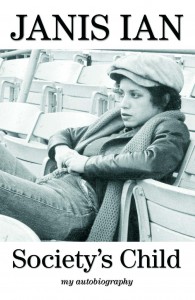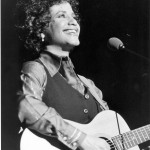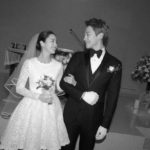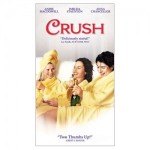 By Jae-Ha Kim
By Jae-Ha Kim
Chicago Sun-Times
August 3, 2008
Four decades before 15-year-old Miley Cyrus caused a media uproar for posing for photographs that implied she was nude, Janis Ian — then also 15 — wrote the critically acclaimed song “Society’s Child.” A thoughtful look at interracial dating, the song was deemed too controversial to play on many radio stations across the country. A few years later, Ian would become a pop star, thanks to her best-known song, “At Seventeen,” which told the universal tale, “Dreams were all they gave for free, to ugly duckling girls like me.”
Now 57, Ian is back in the news for her engaging memoir Society’s Child. She candidly writes about the sexual abuse she suffered from a childhood dentist, the physical abuse she endured during her marriage, her infertility, the realization that she was attracted to women and her friendships with folks like Jimi Hendrix and Janis Joplin.
The singer-songwriter also is celebrating the release of her compilation album “Best of Janis Ian: The Autobiography Collection.” Ian, who will be in Chicago on Friday for a concert at the Old Town School of Folk Music and Saturday for a book signing at Borders in Oak Brook, called from the road to chat about why now was the right time for her to write a book.
Q. How long had you been thinking about writing a memoir?
A. I’ve been offered book deals since I was 16. It just seemed ridiculous to me to write a memoir when I was so young. I hadn’t lived enough. I thought memoirs were for politicians and world figures, and that performers shouldn’t write about their petty, self-absorbed lives. There’s this classic line that goes something like, “More me is always a good thing,” and that was just so embarrassing to me.
Q. So then what made you want to write now?
A. I was riding around in a car about eight years ago with a couple of young musicians. I said something about hanging out with Jimi and one of them said, “Jimi who?” And I said, “Hendrix,” and started to go on with my story. He said, “You knew Jimi Hendrix?!” And I said, “I was his friend.” … And I started to realize that my life might be interesting to people, and that maybe I did have the life experience to share my story.
Q. Your book starts off with an incident when you were 15, when members of the audience started screaming , “N—– lover!” at you. How did you have the fortitude at that age to get back onstage and finish your show?
A. I didn’t know any better. It wasn’t easy. But I’ll tell you, just writing about that incident put me right back into therapy. One of the nice things about writing this book was that I got to stay home for a year and just think and write. It was nice to enter my 50s gracefully and embrace everything that had happened — the good and the not so good.
Q. Were you surprised at the interest your book has generated — both from agents and publishers, as well as people who’ve read it?
A. Yes, actually. I wound up with nine literary agents who wanted to represent me and got about a dozen offers from different publishing houses. People were surprised when I said that I researched myself for this book. But I couldn’t remember everything and I wanted to make sure everything was as accurate as possible. So I Googled myself, pulled out the journals I had been writing in when I was 9 or 10. I went to the local library and looked up old clips. And I have about five or six dear fans who know more about me than I do who were my research assistants! Honestly, without them and my local library, this book wouldn’t have been possible. I was really paranoid that I would say that I was in the U.K. during a certain period when I was actually in Japan. So in a way, I approached the memoir like I was writing a newspaper article and was pretty diligent about fact-checking.
Q. Your fans helped you write this book?
A. [Laughs] My fans in general are extremely appropriate with me. They’re older and a lot of them have been with me since I was 14 or 15. When we did a taping for a show, about 30 people flew in from Malaysia, the U.K., Japan. … I know the dedicated ones by name, can recognize them on sight and know their e-mail handles. They do things for me that are very helpful. I did a Borders signing today and they said, “Do you want me to stand by the merchandise table and explain what’s on the new album?”
Q. Do you feel prepared for another resurgence in your career?
A. People have told me that this book may make more people interested in my music. I’m at that age, though, where perhaps a smaller career and a larger life are what’s more appealing.
Q. Do you see a day when you stop performing “At Seventeen”?
A. As Pollyannaish as it sounds, I can’t tell you how cool it is to have written that song. Someone said to me last night that I must be so sick of that song. I said, “You don’t know what a privilege it is for me that people still want to hear me sing that song.”





